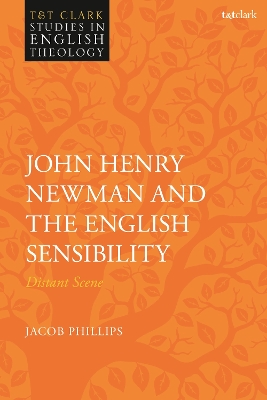T&T Clark Studies in English Theology
1 total work
Jacob Phillips employs key coordinates of cultural theory to discern how the notion of English sensibility applies to John Henry Newman, with a detailed study of Newman’s lifelong conflict with his own cultural identity. Phillips compares Newman’s early Anglican work, featuring integral qualities of ‘reserve’, ‘pragmatism’ and ‘moderation’, and compares them both with Newman’s later critiques of his own work, and the ways in which English tendencies resurface in his mature work.
This book thus sheds new light on the complexity of Newman’s Englishness, as well as the broader lineaments of English theology, by examining the body of scholarship on Newman, English culture and Newton’s fluctuating proximity and distance, English sensibility and Newman’s distance after his conversion. Phillips also contributes to theological reflection on culture more generally, by discerning how theological subject matter is always determined by cultural expression, and yet expands the reach of that expression to attain a scope more fitting to its proper scope; the ultimate universality of God.
This book thus sheds new light on the complexity of Newman’s Englishness, as well as the broader lineaments of English theology, by examining the body of scholarship on Newman, English culture and Newton’s fluctuating proximity and distance, English sensibility and Newman’s distance after his conversion. Phillips also contributes to theological reflection on culture more generally, by discerning how theological subject matter is always determined by cultural expression, and yet expands the reach of that expression to attain a scope more fitting to its proper scope; the ultimate universality of God.
